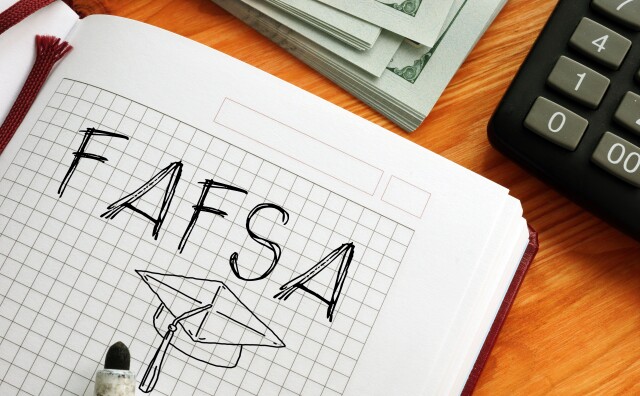Here we’ll break down some of the things you’ll need to prepare for your applications.
Timing and deadlines
The main deadlines you’ll have to keep track of are:
- Financial aid (FAFSA and California Dream Act) deadlines filing period: Submit anytime between October 1-March 2 to qualify for state-based aid. For a community college Cal Grant, submit anytime between October 1-September 2. Try to submit your forms as early as you can to take advantage of first-come, first-served aid opportunities.
- School application deadline: Usually November or December for a four-year college for the following fall term. Community colleges accept applications anytime before classes start for any term (fall, winter, spring, or summer) but keep in mind some classes may fill up as soon as registration opens. Private schools’ application deadlines may vary.
- Deadlines for any other grants and scholarships you are applying for: If you're applying for a bunch of different scholarships from different places, you might want to keep track of deadlines in a spreadsheet or with reminders.
If you’re applying to a four-year college, it’s a good idea to start working on the application — drafting your essays, asking for letters of recommendation, and accessing your transcripts — at least a few months before the submission deadline.
Some things you may need to submit
Your application experience will be very different depending on what school you’re applying to. Applications to four-year colleges tend to be more involved than those for community colleges, trade schools, or continuing education programs. Private four-year schools also tend to ask for more application materials than public colleges. Here are links to some online applications for California schools:
- California Community Colleges
- Cal State
- University of California
- Common App (used by more than 900 schools nationwide)
Here are some elements of most applications you'll come across, plus tips on how to prepare them:
Transcripts or equivalency exam: In most cases, you’ll need to submit transcripts of prior education to the school where you’re applying. That might include a high school transcript and/or transcripts of any higher education institutions you’ve previously attended. In order to get your transcripts you’ll have to request them from the schools you previously attended — sometimes it will require a small fee per copy. If you can’t get them directly from a school, you can try the local school district or county office of education. For higher education institutions that have closed down, the federal Student Aid Commission website has fact sheets on obtaining transcripts. '
There are official and unofficial transcripts; they contain the same information, but official transcripts are sealed and marked differently. Make sure you are ordering the right version that is required in your application.
If you took a high school equivalency exam like the GED, you can go through the exam company’s website to order transcripts and have them sent to schools.
If your previous school was in another country, some schools might ask you to obtain records from those institutions or pay for a separate company to evaluate that transcript and determine if your credits are transferable to the United States. (Read more about that here.)
Test scores: If you’re under age 25, colleges may require you to send in scores from standardized tests like the SAT or ACT. Many schools temporarily suspended requirements to submit standardized test scores after the COVID-19 pandemic hit, however, and some have made it permanently optional to submit those scores, so double check the most updated policy for the school you are applying to. (Here’s a frequently updated list of schools with test-optional admissions.)
Letters of recommendation: These aren’t required at any of California’s public colleges and aren't standard at trade schools, but private four-year colleges and scholarship applications will often ask for them. Letters of recommendation are letters written by teachers, mentors, employers, or other references that can attest to your character, achievements, and readiness for higher education.
Personal statements: These are short essays you’ll be asked to write that answer a prompt. Personal statements are the college’s main way of getting to know you beyond the data: what motivates you, what obstacles you’ve faced, what you envision for your future, and why education is important to you.
Application fee: There will be a fee to apply for UCs, private schools, and CSUs (but not community colleges). You may qualify for a fee waiver if your household income is below a certain threshold. For UCs and CSUs, just fill out the questions about your family income on the application form to determine if you’re eligible. For schools that use the Common App, request a fee waiver in the profile section of the application. For other schools, you can ask the admissions office whether it offers fee waivers.
The specific requirements are going to be unique to each school, so read their application instructions thoroughly. In the meantime, there is no shortage of online resources on how to approach some of these elements — especially the personal essay. You can find many of them on sites like BigFuture and Prep Scholar, or LAist’s College Pathways stories.
-
The hundreds of thousands of students across 23 campuses won't have classes.
-
Over 100 students from Cal Poly Pomona and Cal Poly San Luis Obispo learned life-changing lessons (and maybe even burnished their career prospects).
-
The lawsuit was announced Monday by State Attorney General Rob Bonta.
-
Say goodbye to the old FAFSA and hello to what we all hope is a simpler, friendlier version.
-
The union that represents school support staff in Los Angeles Unified School District has reached a tentative agreement with district leadership to increase wages by 30% and provide health care to more members.
-
Pressed by the state legislature, the California State University system is making it easier for students who want to transfer in from community colleges.







